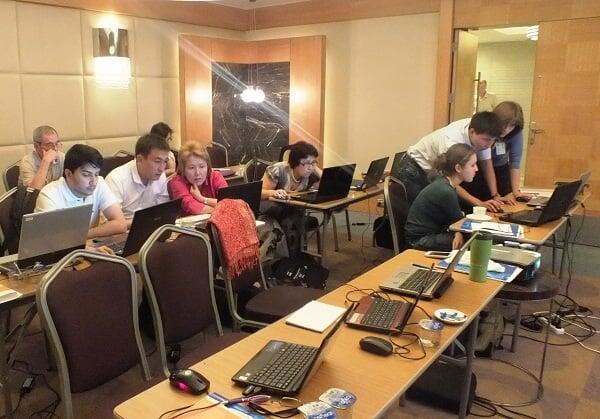Some 50 policy-makers, government officials and statisticians from across Eastern Europe and Central Asia participated in a UNFPA training course in Antalya on the interplay between population and development, and reproductive health, family planning and changing family structures in modern societies.
The ten-day training, which began on 23 September and was run by the Moscow Higher School of Economics (HSE) and Charles University in Prague (CUNI), also featured a component on population projections.
“Population policies too often aim at achieving abstract demographic targets,” said Gulnara Kadyrkulova, UNFPA Programme Specialist on Population and Development. “Our training course puts the emphasis on investing in human capital as a means to ensure populations are healthier, better educated and therefore also more productive.”
The course covered areas such as ageing, migration, mortality, fertility and the impact of climate change. Participants were also able to enhance their knowledge on how youth and education policies, family planning, and gender equality impact on population and development.
“This event also is an excellent opportunity for the exchange of knowledge and experiences among participants from different countries,” said Kadyrkulova, pointing out that officials and experts from 17 countries attended the training.
The part of the training course run by Charles University was supported by a financial contribution from the government of the Czech Republic.


